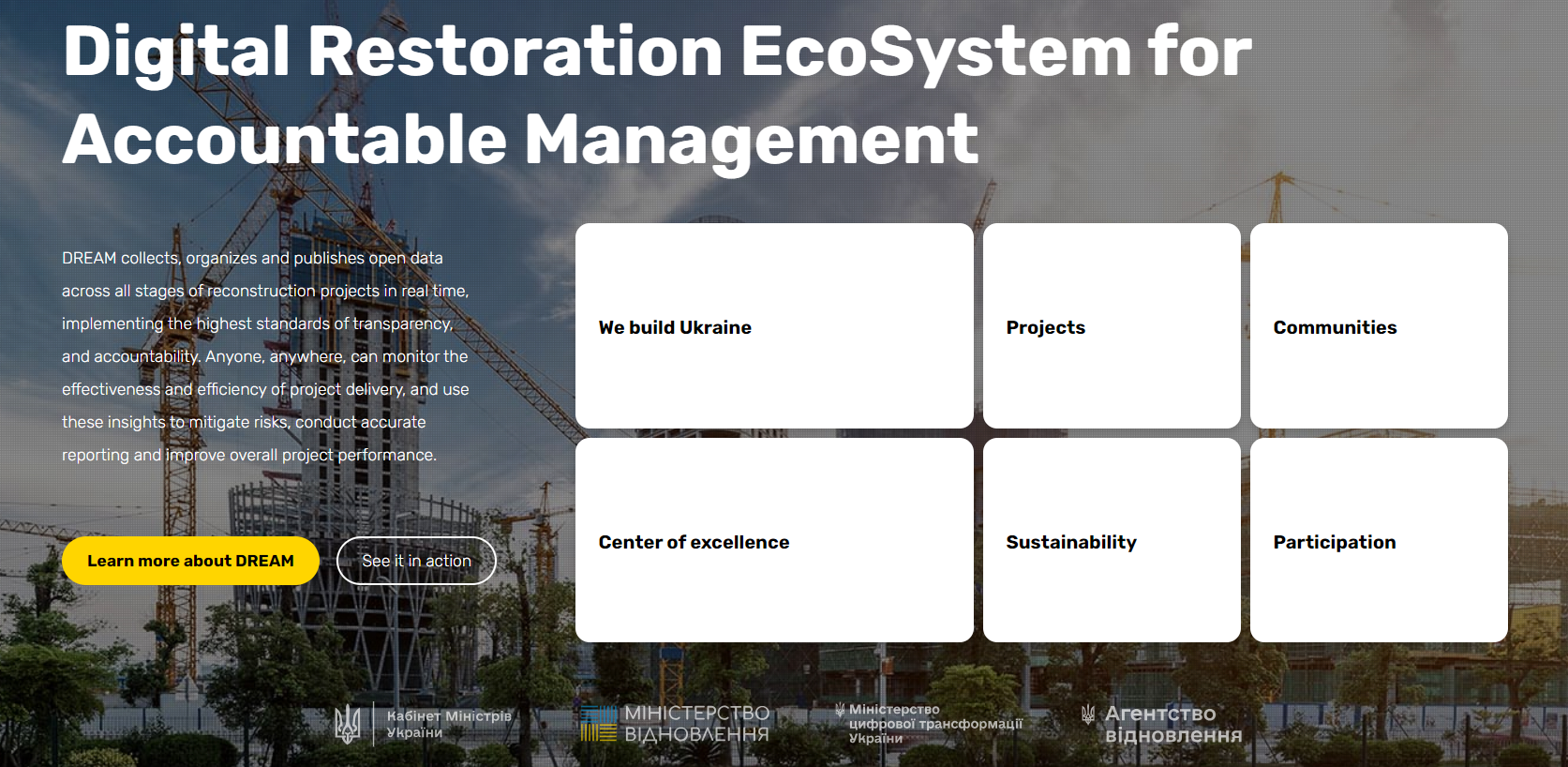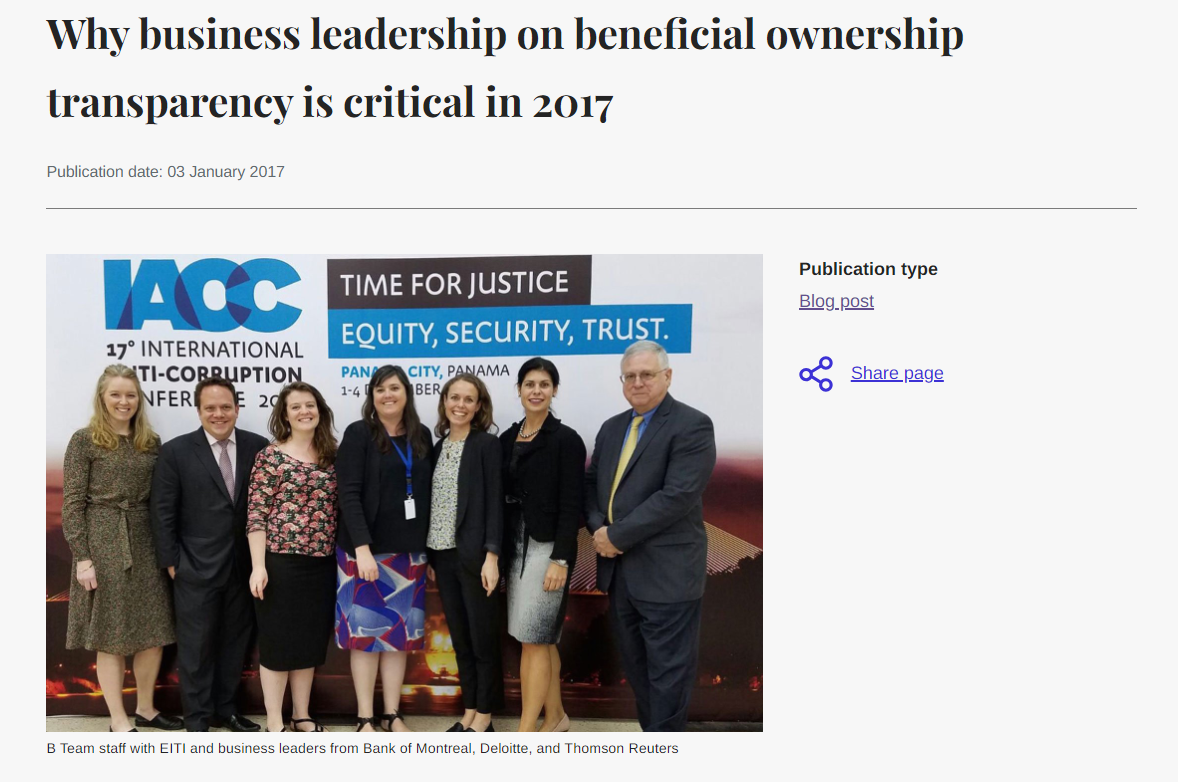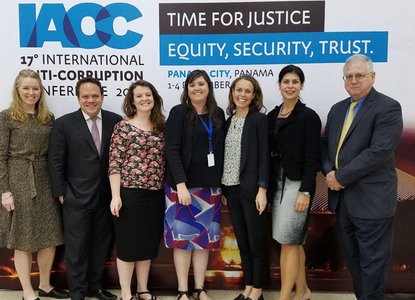World leaders: beneficial ownership transparency is a key building block for Ukraine’s future and beyond

High-level delegates at the 2023 Ukraine Recovery Conference
An Open Ownership long read
The high-level Ukraine Recovery Conference saw world leaders speak of Ukraine’s investment potential and the role of the private sector in driving recovery, with a clear link to the need for beneficial ownership transparency.
June saw a series of high-profile events in London, including the Ukraine Recovery Conference, held jointly by the UK and Ukraine. Side events included sessions for civil society and governments organised by Chatham House, Transparency International and the European Bank for Reconstruction and Development (EBRD).
The conference shone a spotlight on the critical role and opportunity for the private sector to invest in and be part of Ukraine’s recovery. It also highlighted the importance of beneficial ownership transparency and wider anti-corruption reforms as essential for supporting democracy and the rule of law, in Ukraine and beyond.
But businesses aren’t just a source of much-needed investment for Ukraine’s economic recovery. With reforms like beneficial ownership transparency, businesses can and should be the supporters and drivers of Ukraine’s commendable ambitions for transparency and accountability throughout its recovery.
James Cleverly, UK’s Secretary of State for Foreign, Commonwealth and Development Affairs spoke during the conference of “unlocking Ukraine’s potential through a private sector-led recovery” to “rebuild better [and] greener”.
Ukrainian President Volodymyr Zelenskyy spoke in his address about rebuilding infrastructure and Ukrainian lives, and rebuilding Ukraine to protect freedom. He drew a direct line between transparency and corruption, noting that: “the more transparent Ukraine is, the more corrupt Russia will look”.

President of Ukraine Volodymyr Zelenskyy addressing the Ukraine Recovery Conference in June 2023
A central theme highlighted by United States Secretary of State Anthony Blinken was of rebuilding Ukraine to lay the foundations for democracy. “Democracy paves the way for the rule of law and getting rid of corruption,” he said. Secretary of State Blinken also spoke about the role of digitising systems in reducing corruption, and technology was a key focus throughout the event.
DREAM: Innovative new digital ecosystem
During the conference, Ukraine’s Department for Digital Transformation pitched impressive technological innovations, building on Ukraine’s strong record of digitising public services.
Ukraine announced its new transparency initiative DREAM, the Digital Restoration Ecosystem for Accountable Management. DREAM collects, organizes and publishes open data across all stages of reconstruction projects in real time, implementing the highest standards of transparency, and accountability. Anyone, anywhere, can monitor the effectiveness and efficiency of project delivery, and use these insights to mitigate risks, conduct accurate reporting and improve overall project performance. This state digital ecosystem provides a single digital pipeline for all reconstruction projects.
Odile Renaud-Basso, President of the EBRD, talked of DREAM giving investors confidence and supporting economic resilience, while Jeff Bullwinkel, Microsoft’s Regional Vice President and Director of Corporate, External and Legal Affairs noted that “the ability to have open, transparent government through technology will help Ukraine tackle corruption.”

Screengrab from the DREAM Ukraine website: https://dream.gov.ua/
Civil society was the missing link
Consigned largely to the side events was the role of civic participation, a disappointing omission from the conference plan. Civic participation has been crucial in getting Ukraine to this point, driving innovation and providing public oversight and momentum to tackle corruption. This is also a core objective of DREAM, and civil society actors including RISE (Reconstruction Integrity, Sustainability and Efficiency) Ukraine and Open Contracting Partnership have been instrumental to developing DREAM.
Throughout Open Ownership’s work with the Government of Ukraine to support beneficial ownership transparency reforms, civil society has driven innovation and engaged in dialogue with government and private sector actors to make progress. In 2015, Ukraine became the first country in the world to launch a public register of the beneficial owners of corporate entities registered in the country, and since then we have continued to support Ukraine to make further improvements on key issues such as data verification and sanctions for non-compliance.
Businesses and investors should support beneficial ownership transparency
The investment proposition for Ukraine is indeed significant, and investors of course desire the predictability and stability that is underpinned by good governance and robust rule of law.
The anti-corruption progress that Ukraine has achieved since 2014 has been won through collective action across government, business and civil society, and the new measures announced to spearhead its transparent recovery and reconstruction will also depend on this collaboration.
It is therefore in the direct interest of businesses wanting to invest in Ukraine to add their voice of support to Ukraine’s transparency and accountability reforms. In the case of beneficial ownership transparency, this means companies elevating the discourse beyond their risk and compliance teams, and viewing it as a strategic C-suite goal that enables a conducive business environment.
Open Ownership recently published research on private sector support for beneficial ownership reforms in the United States. Here we highlighted how business associations had spoken out in support of beneficial ownership reforms due to its importance for protecting legitimate businesses from fraudulent companies under-bidding during public procurement. With the huge procurement task ahead for the reconstruction of Ukraine, this is a compelling reason for businesses to support beneficial ownership transparency in the country.
But collectively, Open Ownership and others have been saying this for a while. While writing this blog post, I came across a piece written for Open Ownership in 2017 highlighting that even then some prominent leaders from business were speaking out in support of beneficial ownership transparency.

Screengrab showing blog post on business leaders promoting beneficial ownership transparency from 2017
Six years later there are undoubtedly more business leaders speaking out in support of beneficial ownership transparency, but they are still innovators rather than the norm. Perhaps the focus of international investors on the opportunities of Ukraine, and Ukraine’s determined record to tackle corruption, can be a turning point to help make active support of beneficial ownership transparency the norm.
Leveraging the energy transition to accelerate change
Companies in the extractive sector were among the first to take an active advocacy role to promote beneficial ownership transparency. The Extractive Industries Transparency Initiative (EITI), in its updated expectations of supporting companies, includes a commitment for all supporting companies to “Publicly declare and publish support for beneficial ownership transparency and publicly disclose beneficial owners in line with the EITI Standard”.
At the Ukraine Recovery Conference, The Prime Minister of Ukraine, Denys Shmyhal, named the extractive sector as one of Ukraine’s priority sectors for investment. With the largest deposits of Lithium in Europe, and significant deposits of several other critical minerals that are essential for clean energy, this sector is expected to grow significantly.
Coupled with the EITI’s recent strengthening of its requirements for beneficial ownership transparency in the 2023 EITI Standard, further targeted work to mobilise actions from extractives companies to advance beneficial ownership transparency would be useful. This is one of the issues Open Ownership and EITI are exploring as we evaluate our joint Opening Extractives programme midway through its five-year delivery. Much has been achieved in this programme and beyond, but much more remains to be done to unlock the power of the private sector in supporting beneficial ownership transparency.

